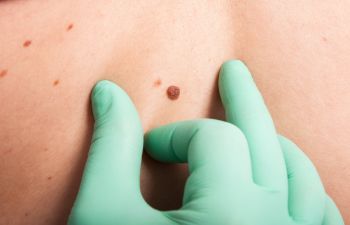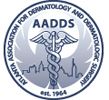
With summer winding down, school back in session, and fall right around the corner now is a good time to take care of your skin and get your moles checked. Limiting or avoiding exposure to ultraviolet (UV) radiation can reduce the risk of skin cancer. The Skin Cancer Foundation recommends an annual full-body exam to check your moles. Because moles come in all shapes, sizes, and colors, the best way to ensure there are no atypical moles or skin cancer is by making an appointment to get your moles checked. Dr. Kayal at Kayal Dermatology & Skin Cancer Specialists specializes in full-body exams and checking to make sure your moles are not at risk.
Early detection of skin cancer gives the greatest chance of success. There are three major types of skin cancer a dermatologist is looking for:
- Basal cell carcinoma (BCC) – This is the most common type of skin cancer. BCC’s appear as a raised, flesh-colored, pearly bump on the skin that was exposed to the sun. They are usually seen on the head, neck, and arms but can form anywhere on the body.
- Squamous cell carcinoma (SCC) – This is the second most common type of skin cancer. SCC’s appear as a red firm bump or scaly patch. These will appear on any sun-exposed skin.
- Melanoma – This is the deadliest form of skin cancer. Melanoma is formed in a mole or appears as a new dark spot on the skin. They are brown-to-black in color. These moles often change in size, shape, color, or elevation.
Between the annual full-body exams, you should be doing self-checks on a routine basis. Follow the ABCDEs of self-checks. (A) asymmetry, (B) changes in border, (C)changes in color, (D)changes in diameter, or (E) any evolving moles.
Skin Cancer Specialists in Marietta
If you are in Marietta or surrounding areas, call Kayal Dermatology & Skin Cancer Specialists today to schedule your annual mole check.
Posted on behalf of
141 Lacy Street, Suite 200
Marietta, GA 30060
Phone: (770) 426-7177
FAX: (770) 426-7745
Email: kayaldermatology@gmail.com
Mon-Fri: 7:30 am – 5:00 pm







